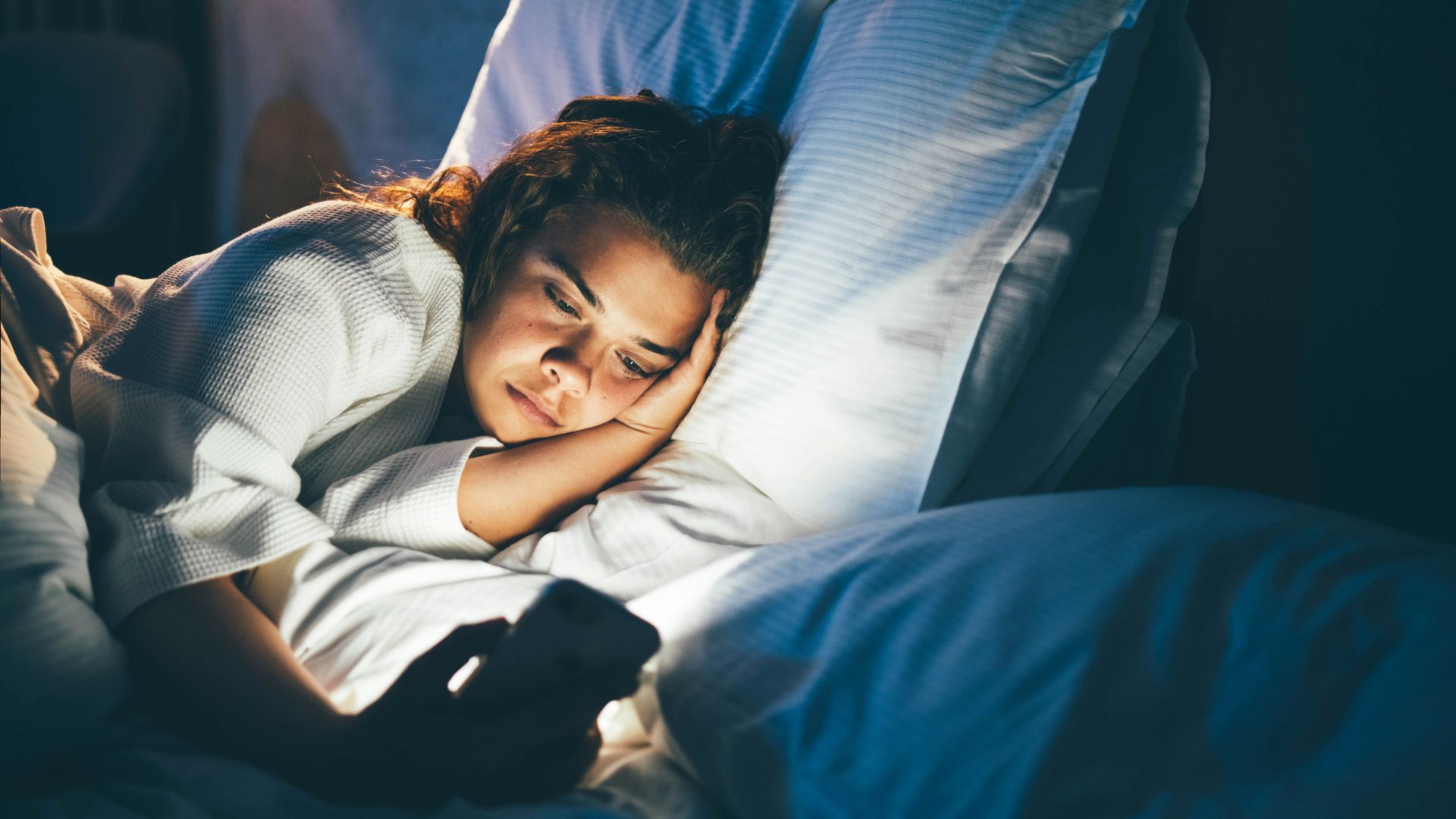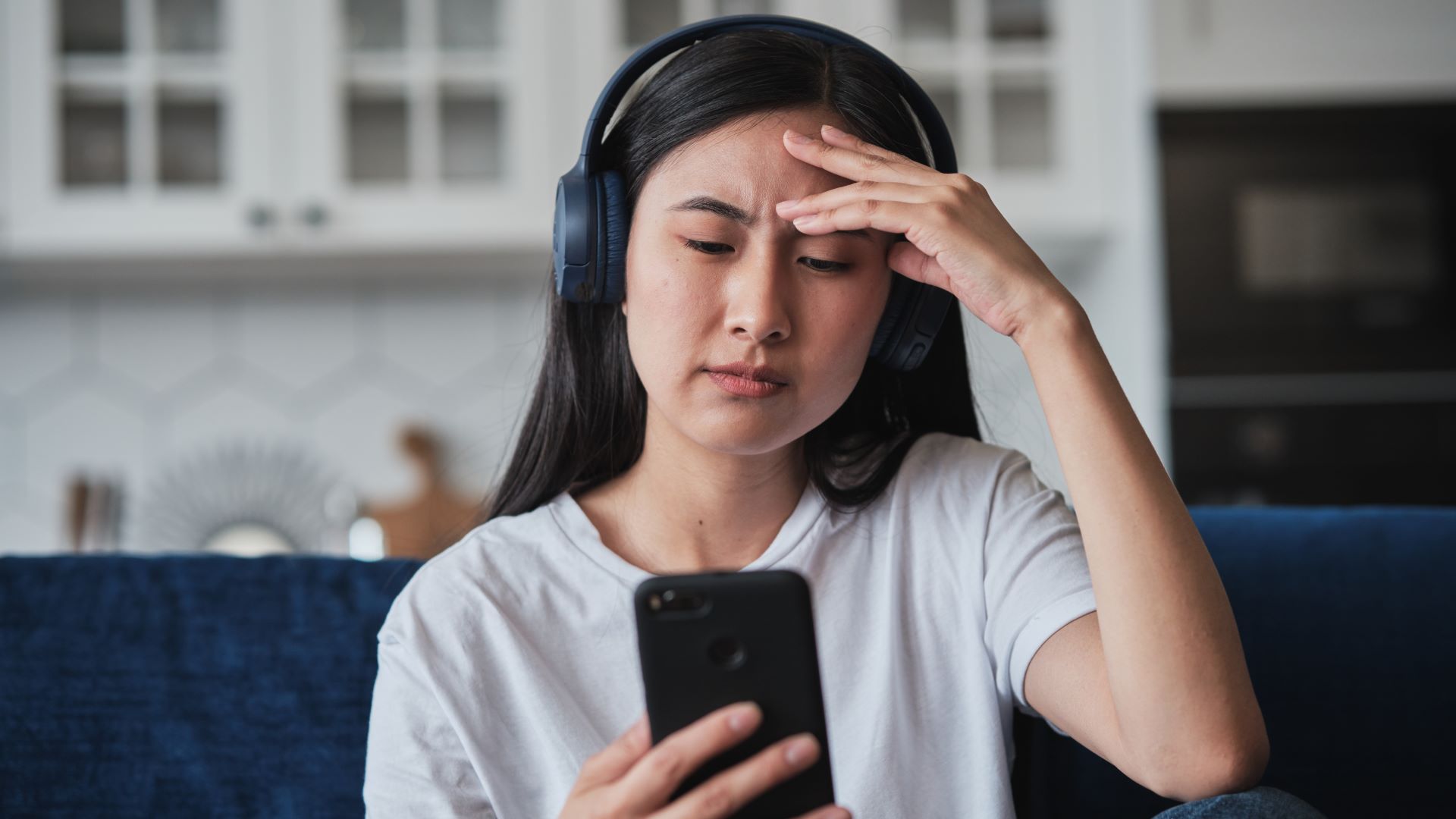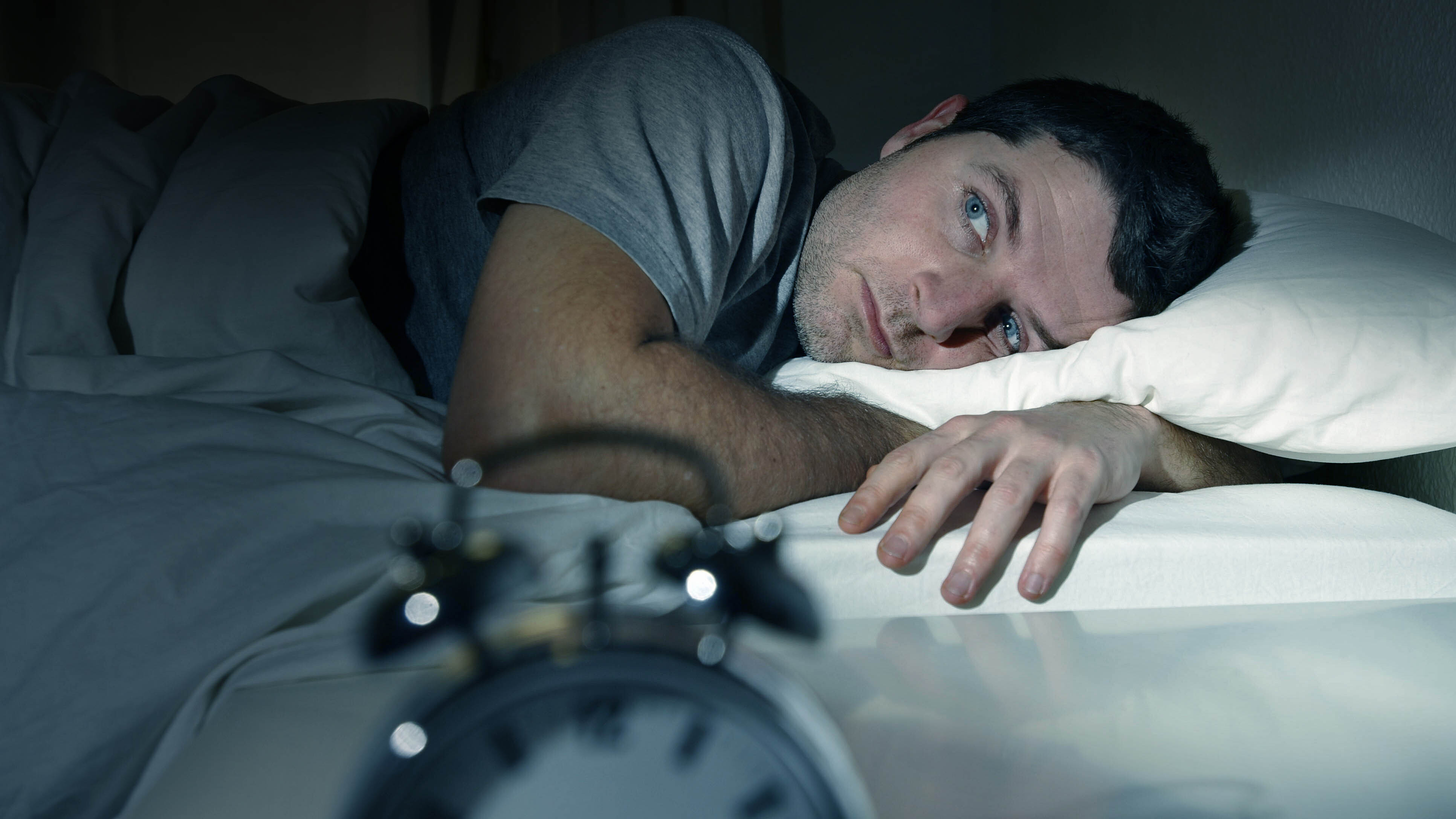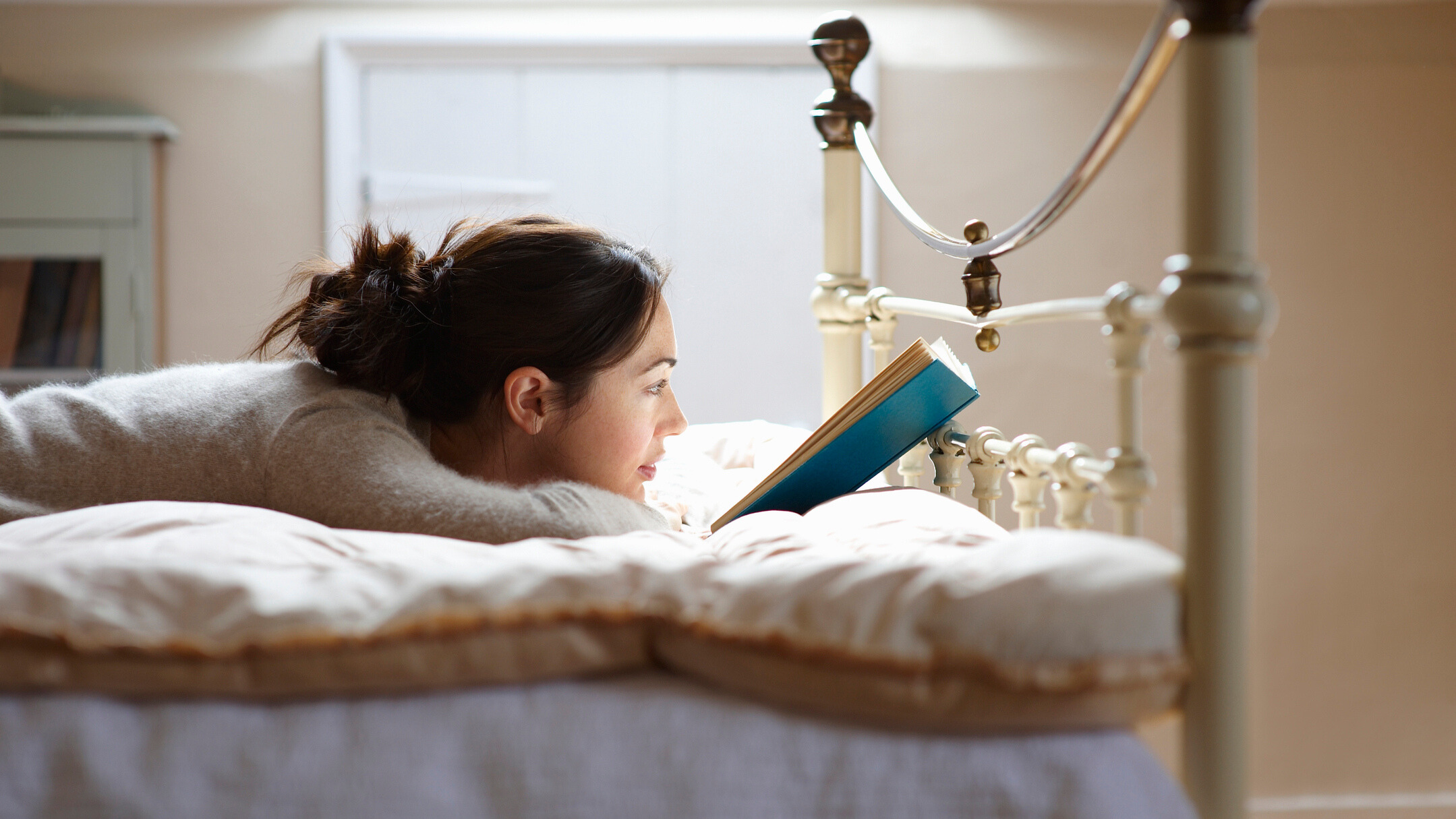Can’t sleep after doomscrolling? Experts explain the ‘brain rot’ effect
Scrolling through online content for hours on end might seem harmless enough, but could it be contributing to your broken sleep?

Here at Tom’s Guide our expert editors are committed to bringing you the best news, reviews and guides to help you stay informed and ahead of the curve!
You are now subscribed
Your newsletter sign-up was successful
Want to add more newsletters?

Daily (Mon-Sun)
Tom's Guide Daily
Sign up to get the latest updates on all of your favorite content! From cutting-edge tech news and the hottest streaming buzz to unbeatable deals on the best products and in-depth reviews, we’ve got you covered.

Weekly on Thursday
Tom's AI Guide
Be AI savvy with your weekly newsletter summing up all the biggest AI news you need to know. Plus, analysis from our AI editor and tips on how to use the latest AI tools!

Weekly on Friday
Tom's iGuide
Unlock the vast world of Apple news straight to your inbox. With coverage on everything from exciting product launches to essential software updates, this is your go-to source for the latest updates on all the best Apple content.

Weekly on Monday
Tom's Streaming Guide
Our weekly newsletter is expertly crafted to immerse you in the world of streaming. Stay updated on the latest releases and our top recommendations across your favorite streaming platforms.
Join the club
Get full access to premium articles, exclusive features and a growing list of member rewards.
Ever reached a point where you've scrolled social media on your phone for so long before bedtime, you feel foggy, overstimulated, anxious and struggle to get to sleep? It may be that you, and your sleep, are being impacted by ‘brain rot.’
Research indicates that brain rot — the concept of mental deterioration as a result of consuming too much low-quality online content — is an issue for younger adults and adolescents in particular, who reportedly spend an average of 6.5 hours a day online.
Brain rot is believed to affect your attention span, productivity, mental and emotional health — and it could also be negatively impacting your sleep.
We've spoken to a doctor and a psychologist to better understand how brain rot can affect your health and wellbeing, and how it may be disrupting your sleep. Plus, we get their tips for how you can avoid it. Read on to find out more...
What is brain rotting?
While the term was the 2024 ‘Oxford University Press word of the year’ they note that its first use dates back to Henry David Thoreau’s 1854 book, Walden:
"While England endeavours to cure the potato rot, will not any endeavour to cure the brain-rot – which prevails so much more widely and fatally?”

Now, it's a viral phrase that refers to the overconsumption of online content that is considered to be "trivial or unchallenging", according to Oxford University Press, and in particular, content viewed on social media.
Get instant access to breaking news, the hottest reviews, great deals and helpful tips.
"Brain rotting is not a clinical term but it’s used to describe the sense of mental fatigue or dullness often linked to overstimulation, usually from screens or scrolling," says Dr. Ola Otulana, GP at Cassiobury Court.
The word 'brain rot' is not about the brain physically decaying, but rather a metaphor for feelings of cognitive burnout.
"People describe feeling foggy, or unmotivated or detached after long periods of mindless content consumption," explains Dr Otulana.
How does brain rot impact sleep?
"When your brain is bombarded with nonstop stimuli — especially from fast-paced, emotionally charged content — it struggles to shift into a restful state," says Dr Leah Kaylor, sleep expert and clinical psychologist.
We've taken a look the different ways brain rot can affect your sleep:
1. It can trigger or worsen anxiety
"Excessive screen time and passive content consumption can contribute to feelings of low mood or anxiety," says Dr. Otulana.
The experts we spoke to noted that excessive social media use can cause anxiety, loneliness and 'digital stress,' which can lead to depression and sleeplessness, or symptoms of conditions like insomnia.
"The constant stream of information, much of it emotionally charged or trivial can overload our emotional processing centres. Over time, this can lead to increased anxiety and dips in mood," Dr. Otulana adds.

2. Your mind is overly stimulated before bed
On the surface, scrolling through your phone before bed might seem like a relaxing activity that can distract you from other concerns and help you switch off. The reality is, it's more likely to negatively impact your sleep.
"When your brain is overstimulated, especially in the hours before bed, it can have an effect on your sleep quality," says Dr Otulana.
"The brain doesn’t get a proper wind down period which is essential for transitioning into restful sleep. Instead of easing into a natural sleep cycle, you’re left feeling distracted or restless."
This mental overstimulation can delay sleep onset (the time taken to fall asleep), reduce deep sleep, and even contribute to vivid or disruptive dreams.
3. Screen exposure throws off your sleep cycle
Light, and the blue light from electronic devices in particular, interferes with melatonin (the sleepy hormone) production and confuses your body into thinking it's still day time.
This can affect your circadian rhythm (the body's internal wake and sleep cycle) which can result in disrupted sleep, and lead to increased fatigue due to lack of proper rest and less cognitive clarity to carry out your daily routine.

Three ways to reduce brain rot and improve sleep
1. Stick to a no-screen rule in the hours before your bedtime
Sticking to a digital curfew is a habit that even celebrities like Friends star, Jennifer Aniston, have adopted.
It means giving yourself a set time before sleep where you don't look at your digital devices, and as well as helping you avoid brain rot, it can also give your body and mind time to relax and unwind effectively before bed.
Putting your devices away a few hours before your bedtime and changing the settings to block internet access are both ways that can help you restrict your digital consumption before sleep.
2. Pick up a calming activity or hobby instead

One benefit of all the time you'll have if you disconnect from your phone is that you can take up a relaxing hobby or calming activity in the hours before bedtime.
This could be anything from reading a book, journaling, taking a warm shower or even a quick 15-minute yoga session aimed at improved circulation, tension release and aiding restful sleep.
3. Develop a nighttime routine
Having a consistent nighttime routine is a golden rule of good sleep hygiene. It doesn't have to be elaborate or indulgent, though. Instead, think of it as a chain of small steps taken to help you winddown and relax before bed.
You could consider making yourself a sleepy-time drink, listening to gentle music, stretching, reading, lighting candles or having a bath.
Creating your ideal relaxing bedroom setup, with one of the best mattresses for your sleeping style and body type and the best pillows to support your body is also essential for achieving a restorative night's sleep.

Becky is a Sleep Staff Writer at Tom’s Guide covering all things sleep-related including product reviews, research studies, news and explainers. She works on specialist bedding content and is responsible for buyer’s guides like the best pillows for all sleepers and best mattress protectors focusing on popular brands such as Tempur-Pedic, Avocado, Coop Home Goods and more. Becky is a PPA accredited journalist who is keen to explore the intricacies of sleep, its effects on skincare, mental wellbeing and work performance. While not thinking of sleep, she can be seen reading in cosy bookshops or learning about global food culture.
You must confirm your public display name before commenting
Please logout and then login again, you will then be prompted to enter your display name.
 Club Benefits
Club Benefits





